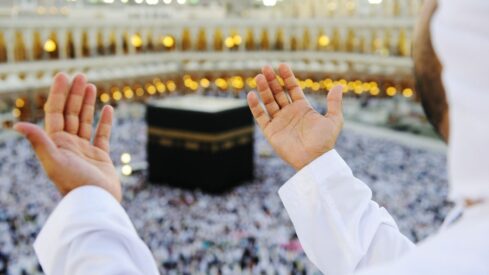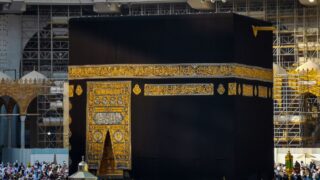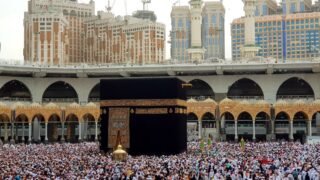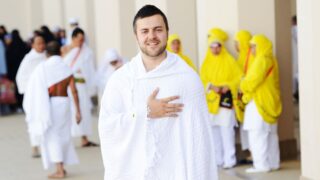Hajj is the greatest Islamic conference Muslims attend from all over the world in a fixed time and a fixed place, after which the pilgrims are affected greatly. It is really a school in which pilgrims learn many of the rulings and ethics of religion. That is because every year Hajj brings forth good fruits of high moral standards by which pilgrims are characterized because of their attendance in the sacred places, and their observing of the rituals of Hajj according to the honorable Sunnah of the Prophet. These result in the good conduct and the high morals pilgrims acquire from the Prophet (peace and blessings be upon him) who said “I have been sent to perfect the high moral standards” and “Learn your rituals from me.”
Among the most important ethics the pilgrims should acquire during Hajj are the following:
- Harmony and brotherly association
In spite of the short time pilgrims spend together, they deal as if they were the children of one father; they treat one another in a cooperative, supportive, and altruistic way despite their different nationalities and distant countries. This shows the great wisdom Allah Almighty put in the acts of worship He prescribed. The Almighty puts in the pilgrims’ hearts the feelings of tenderness and mercy which every pilgrim should in fact enjoy. - Sincere advice to every Muslim
As religion is based on sincere advice, when a pilgrim sees another Muslim doing a mistake, committing a sin, or violating a legal rule, he or she should advise the other and clarify what is right and what is wrong concerning such matters. This should be observed especially during performing the rituals of Hajj and `Umrah in order to keep Muslims away from what may decrease their reward in such acts of worship. - Avoidance of obscenity, disobedience, and dispute
Since the pilgrim is keen on performing a blessed and accepted Hajj, he or she should be aware that the blessed and accepted Hajj is that which is free from such things. - Submissiveness and compliance before Allah Almighty
This is, in fact, what Muslim should observe when worshiping Allah, as it is not becoming that a Muslim shows arrogance or considers such an act of worship a favor he or she has done for Allah. Allah Almighty is the Most Beneficent Who has guided us to the true religion, Islam. - Solidarity and equality
Both are among the honorable ethics Muslims are to observe. The pilgrim provides for the needy Muslim brothers and sisters, especially if such are from distant countries and thus are considered stranded travelers who are entitled to receive charity. Whoever pays such charity will surely receive great reward from Allah Almighty. There are, in fact, so many persons who come from poor countries seeking Allah’s help and then that of the pilgrims who are considered their brothers and sisters in Islam; all constitute one entity. Needless to say that Allah helps those as long as they help their brothers and sisters. - Altruism
It is the best quality a Muslim can be characterized by. Allah Almighty says: [but (they) prefer (the fugitives) above themselves though poverty become their lot] (Al-Hashr 59:9). Complying with such Islamic teachings, we see pilgrims preferring their Muslim brothers and sisters to themselves when eating, drinking, riding, and so forth. This is the real representation of Muslims as one entity. It is Allah’s favor, through which Muslims have attained such advantage. Islam has created mutual affection and mercy, so only to Allah is praise due for such great favors.
To conclude, the great ethics of cooperation, solidarity and brotherly association Muslims enjoy are all a natural result of Islamic assemblies in which Muslims meet every day, every week, or every year. Allah Almighty says: [The believers are naught else than brothers] (Al-Hujurat 49:10).
By Dr. Ibrahim bin Naser Al-Humud*


















